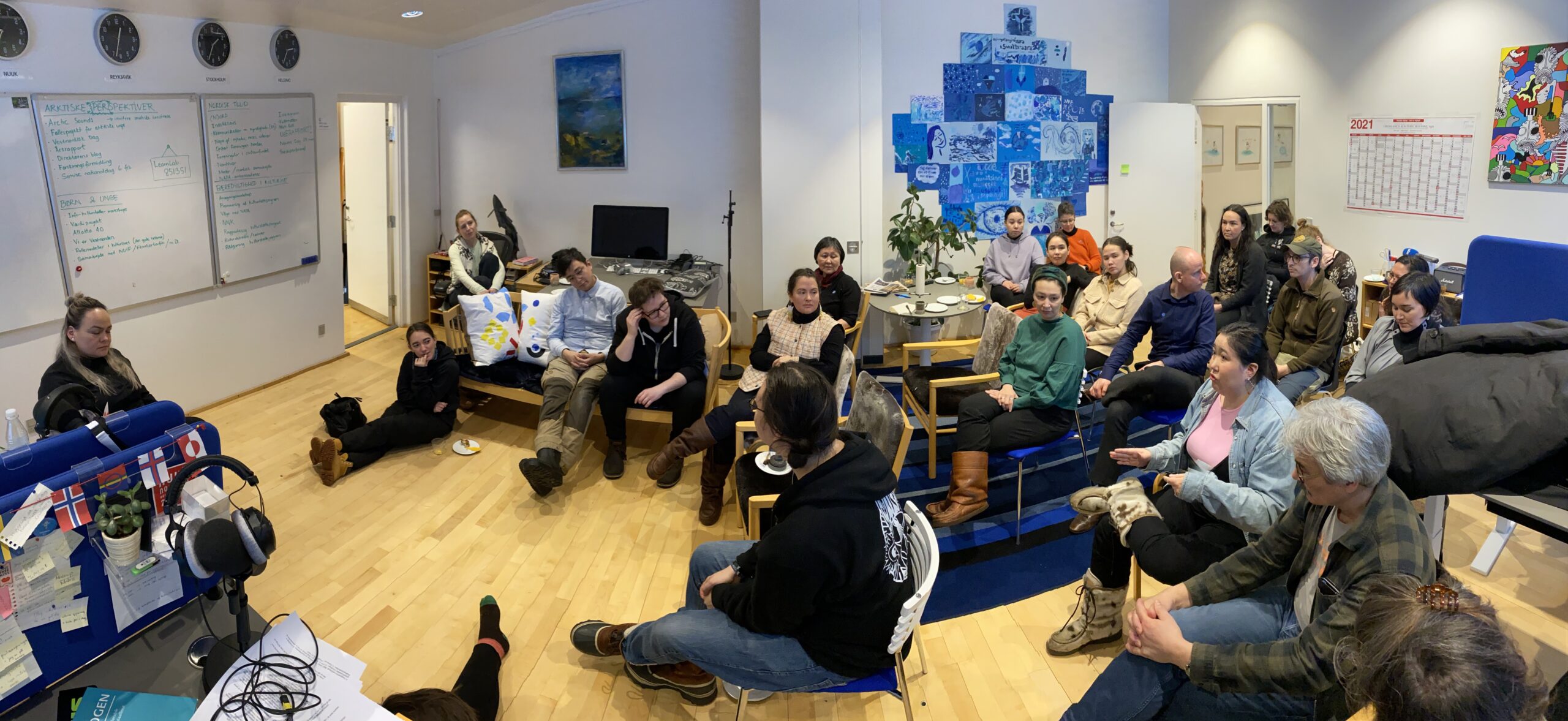
I stroll along the sea, with the ice drifting slowly outwards. Lumps of ice gather on the beach and sparkle in the sun. Some icebergs are white, some are light blue. Behind me is the city, with small houses in wonderful colors and with mean-looking apartment blocks from an old time. The contrast is great, and the feeling of walking in an environment with harsh nature so close to the vibrant city is indescribable. I’m trying to take a picture. I try with panoramic pictures, several close-ups, but end up taking a small video clip 360 degrees. Even a video fails to describe the feeling of being in the middle of nature, the story conveyed in the living structure, the silence, a view that takes your breath away, the cold that bites your cheek, the people who greet when we meet, the feeling of happiness over being allowed to experience this.
So many people ask me to write about what I experience in Greenland. “We know so little about Greenland, tell us more”. There are many ways to convey. It can be travelogues, depictions of art and cultural experiences, images of a magnificent nature, dissemination of research, dissemination of facts. I find it easy to fall short when I try to convey what it is like to live and work here in Nuuk on Greenland’s west coast.
For what exactly is knowledge and competence?
In the West, we tend to narrow the framework for competence in an academic system that does not take over the competence that lies in other systems. Vivi Vold has previously worked for NAPA and in her later work she has explored the concept of competence on many levels. She has just now submitted her master’s thesis at Ilisimatusarfik (University of Greenland), which shows the limitations of a classic western academic system. She presents two forms of knowledge system. She calls it indigenous knowledge and contemporary Eurocentric knowledge. The concepts hit quite well when I feel the limitations I encounter when I try to convey knowledge about what I experience here in Greenland via text and pictures.
"It is only when it is in writing that it is considered knowledge"
In her thesis, a pioneering work in academia according to the assessment from the university, she manages to put into words the competence that is in indigenous knowledge. To experience, be in and learn in a social context with closeness to nature and the environment around people. Academia is only able to acquire and disseminate this competence to a limited extent.
A school that is ignorant of the competence the students have from their home, their experiences and their relationship with nature around them, will be perceived as irrelevant. Throughout the western world, we now experience that the school is not sufficiently relevant in terms of what will be the competencies of the future. It can be a perspective the western school can take over and learn from indigenous people and how they impart knowledge and competence.
I have long said “revolution in school!”. Vivi Vold is making a revolution in academia in the Nordic countries.



